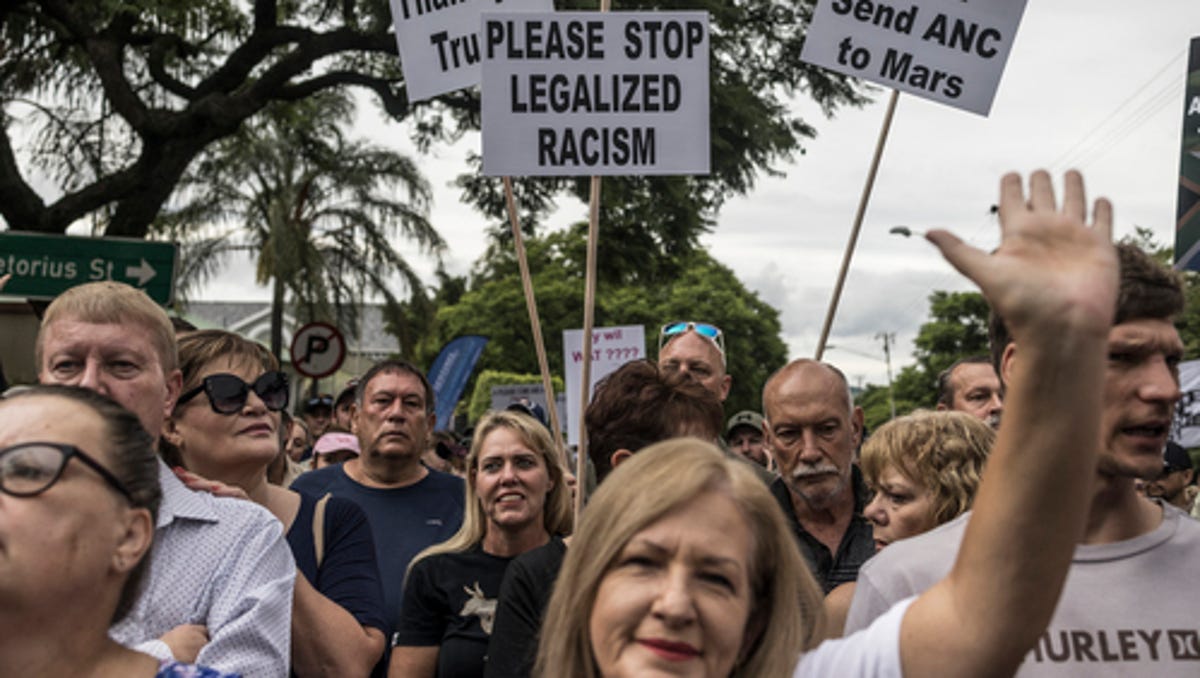Trump appoints Jeanine Pirro as interim U.S. Attorney for DC
President Donald Trump appointed Jeanine Pirro as the interim U.S. Attorney for Washington D.C. after withdrawing the nomination of Ed Martin.
unbranded – Newsworthy
WASHINGTON – After suspending the program for admitting refugees into the United States, President Donald Trump is making an exception for one group: white South Africans, who he claims have been victims of racial discrimination.
About 60 South Africans who belong to the white minority Afrikaner ethnic group ‒ classified by the Trump administration as refugees ‒ are expected to arrive in the United States on May 12.
For decades, South Africa was controlled under apartheid rule by the country’s white minority, many of them descendants of Dutch colonists. Apartheid, a system of legalized segregation, deprived the majority of citizens of basic rights and forced many Black South Africans to live in ethnic Bantustans. It ended in 1994.
Now many white South Africans, who make up a minority of the population, say they’re unfairly targeted by a new law that allows the South African government to seize property for the “public interest,” in some cases without compensation.
Trump’s backing of the Afrikaners goes back to his first term. But he put his support behind the group during his second term after the land seizure policy, known as the Expropriation Act, became law. Trump accused the South African government of “confiscating land, and treating certain classes of people VERY BADLY.”
The arrival of the white South Africans in the United States comes after Trump signed an executive order in February to resettle Afrikaners “escaping government-sponsored race-based discrimination.” The action gave special priority to Afrikaners after Trump effectively halted new refugee admissions when he signed a separate order on day one of his presidency, suspending the decades-old U.S. Refugee Admissions Program.
“What’s happening in South Africa fits the textbook definition of why the refugee program was created,” White House deputy chief of staff Stephen Miller told reporters on May 9. “This is persecution based on a particular characteristic, in this case, race. So this is race-based persecution.”
Trump adviser and Tesla CEO Elon Musk, who is from South Africa, has also been openly critical of the Expropriation Act. In February, Trump took action to cut off foreign aid to South Africa.
South Africa is home to an estimated 3 million Afrikaners, who are generally of Dutch and Huguenot descent and form a significant portion of the approximately 4 million white people in South Africa. The country has an overall population of 62 million, about 81% of whom are Black.
South African President Cyril Ramaphosa has disputed Trump’s claims about land confiscation and discrimination against white South Africans. Ramaphosa and other defenders of the Expropriation Act have argued that the policies are needed to reverse the nation’s apartheid-era legacy of disparities in land ownership.
Although apartheid rule ended more than 30 years ago, the typical Black South African household has just 5% of the wealth of the typical white household, according to a 2024 study by researchers at The Africa Institute and the University of Zambia.
“We reiterate that allegations of discrimination are unfounded,” South Africa’s Ministry of International Relations and Cooperation said in a May 9 statement.
“It is most regrettable that it appears that the resettlement of South Africans to the United States under the guise of being ‘refugees’ is entirely politically motivated,” the statement continues, “and designed to question South Africa’s constitutional democracy; a country which has in fact suffered true persecution under Apartheid rule and has worked tirelessly to prevent such levels of discrimination from ever occurring again.”
The Washington Post reported that approximately 60 Afrikaners are set to arrive on May 12 at Dulles International Airport on a State Department-chartered plane, with a ceremonial news conference planned.
A State Department spokesperson would not confirm how many South African refugees are expected but told USA TODAY the U.S. Embassy in Pretoria, South Africa, had been conducting interviews and processing applications of individuals who have expressed interest in moving to the United States.
Contributing: Francesca Chambers.
Reach Joey Garrison on X @joeygarrison.
